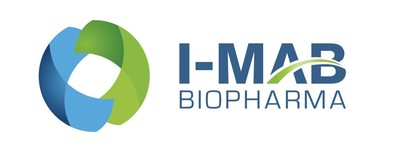I-Mab Announces Multiple Clinical Advancements of Its Differentiated CD73 Antibody Uliledlimab in China and the U.S.
Rhea-AI Summary
I-Mab (Nasdaq: IMAB), a clinical-stage biopharmaceutical company, has announced significant clinical advancements for its CD73 antibody, uliledlimab (TJD5), targeting advanced solid tumors. The company has initiated a phase 1/2 study in China and completed initial assessments in the U.S., demonstrating the safety and clinical activity of uliledlimab in combination with PD-1 inhibitors. Detailed results are expected at major conferences in 2021. I-Mab aims to offer innovative therapies for patients unresponsive to existing treatments.
Positive
- Initiated phase 1/2 study of uliledlimab in China.
- Completed initial assessments of uliledlimab in the U.S. with promising safety and activity results.
- Potential for uliledlimab to enhance treatment efficacy when combined with PD-1 inhibitors.
Negative
- None.
News Market Reaction 1 Alert
On the day this news was published, IMAB declined 1.27%, reflecting a mild negative market reaction.
Data tracked by StockTitan Argus on the day of publication.
SHANGHAI and GAITHERSBURG, Md., Feb. 5, 2021 /PRNewswire/ -- I-Mab (Nasdaq: IMAB), a clinical stage biopharmaceutical company committed to the discovery, development and commercialization of novel or highly differentiated biologics, today announced multiple clinical advancements for its proprietary and highly differentiated CD73 antibody, uliledlimab (also known as TJD5, or TJ004309) in advanced solid tumors. The Company plans to present detailed clinical results at select scientific conferences this year.
CD73 is implicated in tumor resistance to checkpoint immunotherapies as it plays a critical role in adenosine-mediated immune suppression in tumor microenvironment. Uliledlimab is a humanized CD73 antibody and works effectively on modulating tumor microenvironment through inhibition of the adenosine pathway. Uliledlimab is shown to strongly suppress tumor growth especially when combined with a PD-(L)1 inhibitor in pre-clinical studies. As a differentiated CD73 antibody, uliledlimab interacts with a unique epitope to function through a novel intra-dimer binding mode, thus enabling differentiated and favorable functional properties. Detailed data from the pre-clinical and mechanistic studies have been submitted for presentation at the upcoming American Association of Cancer Research Annual Meeting.
I-Mab has made significant progress in the global clinical development of uliledlimab. In China, I-Mab is advancing the phase 1/2 dose escalation and cohort expansion study of uliledlimab as a single agent and in combination with toripalimab (TUOYI®) in patients with advanced or metastatic cancers who are refractory to or intolerant of available therapies. On February 3, 2021, the first patient in the combination study was dosed.
In the U.S., I-Mab has completed the initial assessment of its clinical study investigating uliledlimab monotherapy lead-in followed by combination with atezolizumab (Tecentriq®) in patients with solid tumors. Topline results from a clinical study under contract with TRACON show that uliledlimab is safe and well tolerated at the dose range evaluated and demonstrate clinical activity in patients with advanced solid tumors. The Company is scheduled to submit an abstract to ASCO for the 2021 annual meeting.
"We are encouraged and very pleased by the clinical results and overall advancements of uliledlimab in both China and the U.S.," said Dr. Joan Shen, CEO of I-Mab. "We believe that the combination of uliledlimab with immune checkpoint inhibitors, such as toripalimab or atezolizumab, has the potential to offer a novel treatment option with intended clinical benefit in cancer patients who do not or poorly respond to current checkpoint immunotherapies."
About Uliledlimab (TJD5)
Uliledlimab (TJD5) is a differentiated, humanized antibody against CD73, an ecto-enzyme expressed on stromal cells and tumors that converts extracellular adenosine monophosphate (AMP) to adenosine. Adenosine in turn binds to adenosine receptors on relevant immune cells and inhibits anti-tumor immune responses in tumor microenvironment. Uliledlimab is expected to offer clinical benefit by suppressing tumor growth in concert with checkpoint therapies such as PD-1 and PD-(L)1 antibodies. Uliledlimab is effective in anti-tumor activities through a unique intra-dimer binding, leading to differentiated and favorable functional properties as evident in preclinical studies.
About I-Mab
I-Mab (Nasdaq: IMAB) is an innovation-driven global biotech company focusing on discovery, development and soon commercialization of novel and highly differentiated biologics in immuno-oncology therapeutic area. The Company's mission is to bring transformational medicines to patients around the world through drug innovation. I-Mab's globally competitive pipeline of more than 15 clinical and pre-clinical stage drug candidates is driven by its internal R&D capability and global licensing partnerships, based on the Company's unique Fast-to-Proof-of-Concept and Fast-to-Market pipeline development strategies. The Company is now rapidly progressing from a clinical stage biotech company to a fully integrated global biopharmaceutical company with cutting-edge global R&D capabilities, a world-class GMP manufacturing facility and commercialization capability. I-Mab has established its global footprint in Shanghai (headquarters), Beijing, Hangzhou and Hong Kong in China, and Maryland and San Diego in the United States. For more information, please visit http://ir.i-mabbiopharma.com and follow I-Mab on LinkedIn, Twitter and WeChat.
I-Mab Forward Looking Statements
This press release contains forward-looking statements within the meaning of the Private Securities Litigation Reform Act of 1995 and other federal securities laws, including statements regarding data from the TJD5 phase 1 trial, the potential implications of clinical data for patients, and I-Mab's advancement of, and anticipated clinical development, regulatory milestones and commercialization of TJD5. Actual results may differ materially from those indicated in the forward-looking statements as a result of various important factors, including but not limited to I-Mab's ability to demonstrate the safety and efficacy of its drug candidates; the clinical results for its drug candidates, which may not support further development or NDA/BLA approval; the content and timing of decisions made by the relevant regulatory authorities regarding regulatory approval of I-Mab's drug candidates; I-Mab's ability to achieve commercial success for its drug candidates, if approved; I-Mab's ability to obtain and maintain protection of intellectual property for its technology and drugs; I-Mab's reliance on third parties to conduct drug development, manufacturing and other services; I-Mab's limited operating history and I-Mab's ability to obtain additional funding for operations and to complete the development and commercialization of its drug candidates; and the impact of the COVID-19 pandemic on the Company's clinical development, commercial and other operations, as well as those risks more fully discussed in the "Risk Factors" section in I-Mab's most recent annual report on Form 20-F, as well as discussions of potential risks, uncertainties, and other important factors in I-Mab's subsequent filings with the U.S. Securities and Exchange Commission. All forward-looking statements are based on information currently available to I-Mab, and I-Mab undertakes no obligation to publicly update or revise any forward-looking statements, whether as a result of new information, future events or otherwise, except as may be required by law.
For more information, please contact:
I-Mab
Jielun Zhu, Chief Financial Officer
E-mail: jielun.zhu@i-mabbiopharma.com
Office line: +86 21 6057 8000
Gigi Feng, Chief Communications Officer
E-mail: gigi.feng@i-mabbiopharma.com
Office line: +86 21 6057 5785
Investor Inquiries:
The Piacente Group, Inc.
Emilie Wu
E-mail: emilie@thepiacentegroup.com
Office line: + 86 21 6039 8363
![]() View original content to download multimedia:http://www.prnewswire.com/news-releases/i-mab-announces-multiple-clinical-advancements-of-its-differentiated-cd73-antibody-uliledlimab-in-china-and-the-us-301223033.html
View original content to download multimedia:http://www.prnewswire.com/news-releases/i-mab-announces-multiple-clinical-advancements-of-its-differentiated-cd73-antibody-uliledlimab-in-china-and-the-us-301223033.html
SOURCE I-Mab







